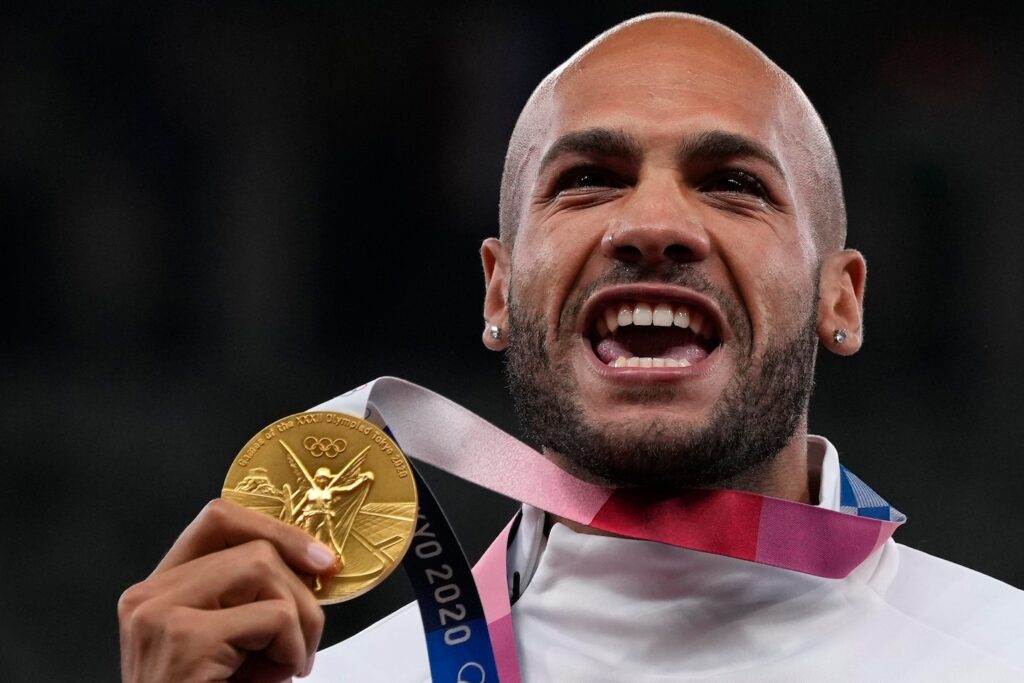World Athletics announced on Wednesday a “groundbreaking decision” to award cash prizes to all athletes who win gold medals at each of the 48 track and field events to be held in Paris (relay teams will share the prize money).
The federation said in a statement that silver and bronze medal winners will receive progressive prize money starting at the 2028 Summer Games in Los Angeles.
“It’s impossible to put a market value on the effort and focus it takes to win an Olympic medal or represent your country at the Olympics, but start somewhere and make sure you generate some revenue. World Athletics President Sebastian Coe said in a statement on Wednesday that the achievements of athletes at the Olympic Games go directly back to the people who make the Games a global spectacle.
Prize money for athletics comes from a portion of the Olympic revenue that the IOC distributes to World Athletics.
The International Olympic Committee announced Wednesday that 90% of the proceeds will be redistributed to each country's national Olympic committee and the international sports federations governing each sport, who will decide how the funds will be used.
“This means that every day, the equivalent of $4.2 million is spent supporting athletes and sports organizations at all levels around the world,” an IOC spokesperson said in a statement. “It's up to each individual to decide [international federation] and [National Olympic Committee] Determine how to best serve athletes and the global development of sport.
World Athletics' move comes amid ongoing changes in the world of amateur sport. In the United States, the NCAA approved a policy more than two years ago that allows student-athletes to profit from their name, image and likeness. This shift is most evident in high-level college football and basketball, where college booster groups can sometimes pay star players through lucrative NIL contracts.
When the modern Olympic Games began in Athens in 1896, athletes were required to be amateurs. Anyone who had earned money while competing was barred from participating in the Olympics. For nearly 100 years thereafter, Olympic athletes continued to compete primarily for the love of the sport.
Matthew Andrews, a history professor at the University of North Carolina at Chapel Hill who specializes in sports and politics, credits Spain's then-IOC president Juan Antonio Samaranch, who had a more modern vision for sports, to He said the situation changed in 1992.
“[Samaranch] “We believed that sports viewers around the world wanted to see the best athletes in their sports, and that was the professional athletes,” Andrews said.
“We want to see Michael Phelps every four years and watch his development. We want to see Usain Bolt come back and defend his title, we want to see Simone Biles. ” said Andrews.
The 1992 Barcelona Summer Games opened the door to the Olympics to professionals, and the so-called “Dream Team” led by Michael Jordan, featuring powerful athletes, most memorably NBA stars, captivated audiences around the world. America's men's basketball team.
The only federation that has suspended the acceptance of experts at that time He was boxing.
“[The International Boxing Federation] “I thought a professional athlete might kill an amateur athlete,” Andrews said. Starting in 2016, professional boxers have been able to compete in the Olympics.
Sponsorships are usually the only source of income for Olympic athletes, while medal winners are often compensated by their home countries, although the amount varies. For the rescheduled 2021 Summer Games in Tokyo, the United States Olympic Committee paid $37,500 for the gold medal, $22,500 for the silver medal and $15,000 for the bronze medal. This amount is on the lower end of the world's cash incentives.
Singapore is the most expensive, with the gold medal winner receiving $737,000. The island nation's only gold medalist is swimmer Joseph Schooling, who won in 2016.
For athletes who participate in sports without professional leagues and don't make it to the podium at the Olympics, it can be financially unstable.
“That's why you didn't see anyone compete in multiple Olympics for a long time. They had to get a 'real' job,” Andrews said.
As much as the Olympics push the ideal of amateurism, Andrews said, brands and other companies always find ways to outsmart top athletes for cash.
“People have always been making money,” Andrews said, noting that World Athletics was merely formalizing backdoor practice. “This is a more honest recognition and putting it out there publicly.”


